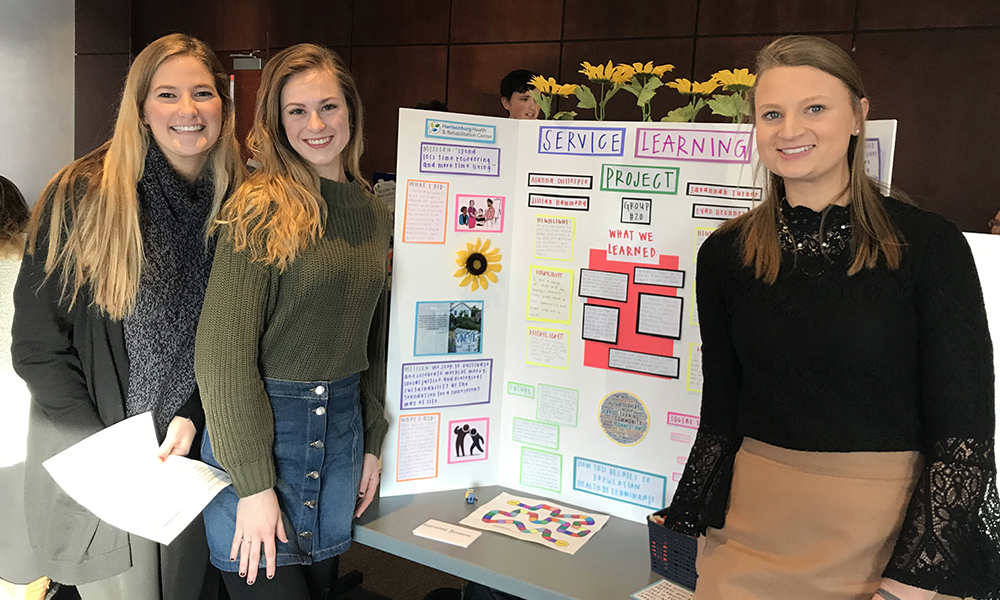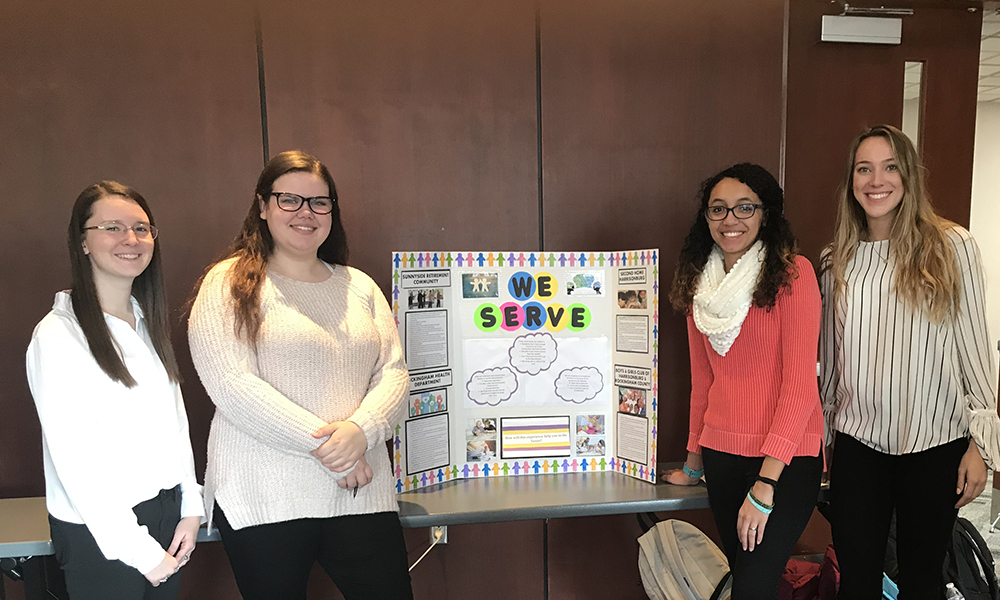Health sciences students engage in service-learning
NewsBy: Sara Banton
Creative Services Student Writer

Community service-learning (CS-L) is a mutually-beneficial opportunity for students to participate in service while reinforcing material covered in the classroom. Professor Tim Howley requires students in his Population Health Determinants (HTH 231) class to engage in 15 CS-L hours during the semester. The JMU CS-L office partners with over 75 local agencies to help place students in a well-matched setting. In the fall semester, 96 students were enrolled in Howley’s course, resulting in 1,400 hours of service provided to the community.
In the class, students study factors that affect the health of individuals and communities, such as wealth, education levels and environment while focusing on cultural competency in healthcare.
“A lot of the skills and characteristics of being a good service-learner and a good healthcare provider are the same, like having patience, empathy and being able to communicate,” Howley said. “We acknowledge that while they are out in the community, they are working on these skills. They are growing professionally and personally.”
Shannon Raff was enrolled in Howley’s course in the fall and volunteered with the Harrisonburg-Rockingham County Child Day Care Center. By working with children, she developed more patience when working with others.
“I learned about health literacy, how we need to clearly explain everything and be patient when it comes to people understanding health information,” Raff said. “Kids ask a lot of questions and it takes time to explain to them why everything was being done for a certain reason. It was a good experience.”
Students are graded based on completion of required hours and on a final reflection project at the end of the semester. They answer three questions in the project: what, so what and now what? These questions make the students analyze what they did, what they learned and how they will use this experience moving forward.

Most of Howley’s students are underclassmen at JMU, so he pushes them to get outside of the ‘JMU bubble’ and realize that they are a part of a larger community. “I challenge the students to try to work with a population that maybe they haven’t worked with before and get a little uncomfortable so they can grow and learn from that experience,” Howley said.
Molly Jacobs volunteered with Overcoming Barriers, an organization that works with children with disabilities. This opportunity allowed her to work with populations she may encounter in her future career as an occupational therapist. Her favorite part of volunteering here was spending time with the same patient every week and really getting to know her.
“She never failed to put a smile on my face,” Jacobs said. “As a healthcare professional, we will need to build trust and relationships with the people who are trusting us with their health.”
Elizabeth Haile chose to complete her hours at the Harrisonburg-Rockingham County Health Department. As a volunteer, she mostly did paperwork, allowing staff to focus more of their time on patients. She was able to see the staff overcome obstacles, like language barriers, through the time she spent at the health department.
“I appreciate the work that they do. They provide healthcare to those that can’t afford it and do it with a smile on their face,” Haile said. “It taught me to be more open-minded.”
When Howley was a student at JMU, he completed service-learning at the Boys and Girls Club and was involved with the Alternative Break Program. Through both, he developed an appreciation for these types of experiences. “I feel the need to get my students tuned into these opportunities,” he said. “We can talk about these things all day in a classroom and use examples and readings, but the true learning happens when you experience it and that’s the most important thing.”

